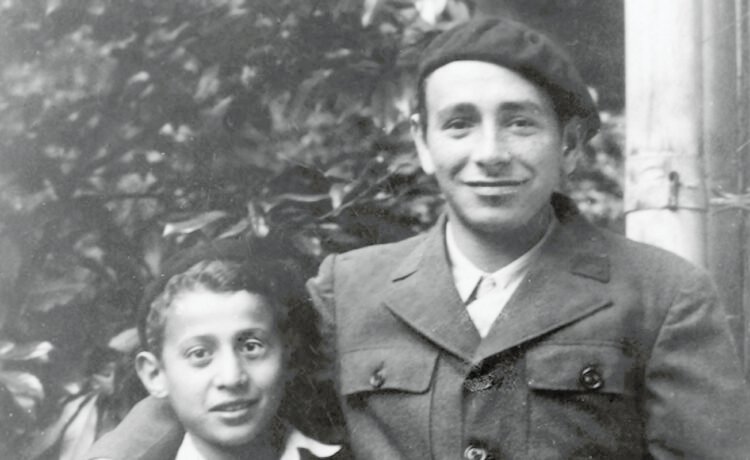(RNS) — The modest but lovely home in Toronto has been sold. My beloved, widowed mother-in-law has moved in with one of her daughters, who lives nearby.
For years, though, when my in-laws lived in the house, taped to the front window was a piece of paper, a photocopy of a photograph of a tarnished and bent spoon.
Behind it, of course, there is a story.
My father-in-law, I.I. Cohen, of blessed memory, was an alumnus of a number of World War II concentration camps. The spoon in the photograph was one of the items he smuggled out of Auschwitz when the Nazis moved him into “Camp No. 8” — a quarantine camp for those suspected of carrying typhus.
Due to the illness, there were no regular labor teams in this new camp, but healthy inmates were ordered to help in its construction, which was still underway. Having had some experience in the Lodz ghetto as a mechanic, my father-in-law was assigned to assist the electrical technician in installing the camp’s lighting.
Given access to tools, he brought his spoon, his only possession, to work one day and surreptitiously filed down its handle, turning that end of the utensil into a sharp knife, which he used for cutting the chunk of bread he and others were allotted and had to apportion fairly. The knife end became a key to avoiding disputes and maintaining relative peace among the prisoners, while he continued to use the spoon to eat his soup ration.
When winter came, he was transferred to “Camp No. 4” in Kaufering, an installation similar to Auschwitz. Despite terrible deprivations and hardships, my father-in-law and other religious Jews in the camp tried whenever possible to maintain what Jewish law and practices they could, despite all the dangers that involved.
My father-in-law always kept mental track of the Jewish calendar, and he knew when Hanukkah had arrived. During a few minutes’ work break, he and a group of inmates began to reminisce about how, when they were children back home before the war, their fathers would light their menorahs with such fervor and joy. They remembered how they could never get their fill of watching the small flames sparkling like stars, how they basked in the warm, special glow.
And the inmates spoke of the ancient battle that Hanukkah commemorates, the Jewish rebellion against the Seleucid Greek conquerors of the Holy Land, who were intent on erasing Jewish observance from the populace, and Judaism from their hearts. And how, with God’s help, the rebels were able to rout their enemy and resume their fully Jewish lives.
If only, the prisoners wistfully mused, they could light a Hanukkah candle these nights. Although it’s ideal to light an additional candle each night of the eight-day holiday, Jewish tradition’s requirement is satisfied with the lighting of a single candle.
One prisoner offered that he had a bit of margarine saved from his daily ration. That could serve as oil. And wicks? Some of those present began to unravel threads from their uniforms.
But a menorah. They needed a menorah.
With a smile (at least I imagine he smiled; he was a happy person) my father-in-law took out his spoon. Within moments, the small group was lighting their Hanukkah “candle,” reciting the requisite blessings. The prisoners stood transfixed, immersed in their thoughts of Hanukkah gone by.
The small flame also kindled a glimmer of hope. As the prisoners recited the blessing referring to the miracles wrought by God “in those days,” but also “at this time,” they understood that, indeed, “at this time,” what they needed was a miracle.
Nonreligious Jewish inmates, too, stood nearby and watched the luminous moment in the darkness of their concentration camp lives.
My father-in-law merited personal miracles, surviving that dark time — a harrowing story in itself, which he chronicled in his book “Destined to Survive.” And throughout his life, he brimmed with gratitude for having been graced with a postwar life, and for the children, grandchildren and great-grandchildren he was able to see.
The photocopy depicting the spoon is now in a new house, far from where I live. But each year I think of it and am reminded of my father-in-law’s resilience and faith, and of the resilience and faith of the Jewish people.
(Rabbi Avi Shafran writes widely in Jewish and general media and blogs at rabbishafran.com. The views expressed in this commentary do not necessarily reflect those of RNS.)















